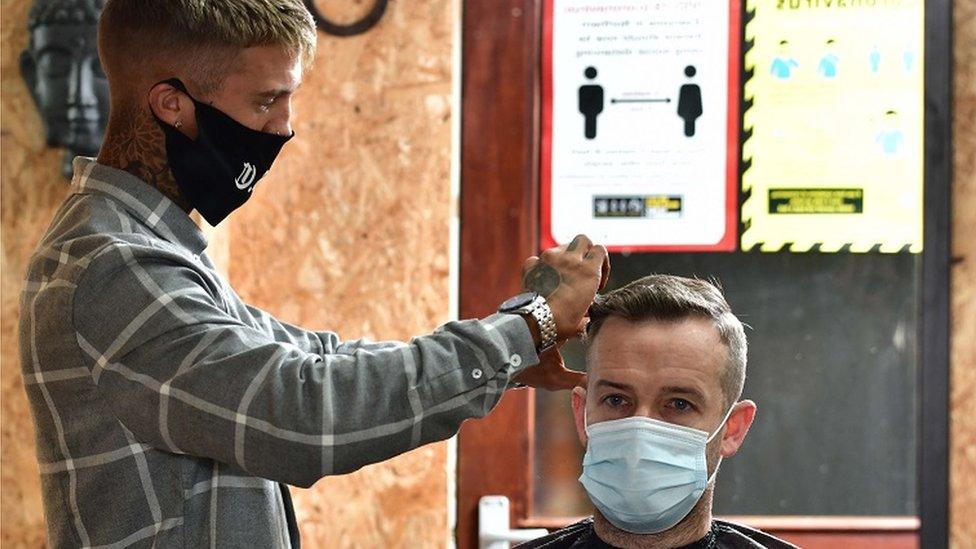Covid-19: Foster regrets 'torturous' decision-making
- Published
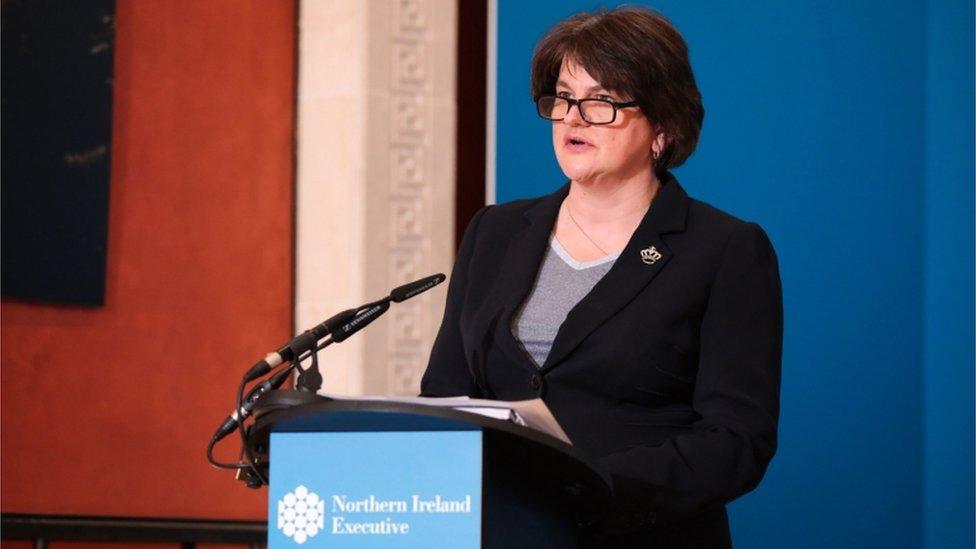
Northern Ireland's first minister said she regrets how the executive has handled the decision over extending Covid-19 restrictions this week.
Arlene Foster said it had been a "torturous example of how not to take decisions".
On Thursday, restrictions were extended for one more week with a partial reopening of some sectors next Friday.
Close contact services and unlicensed premises can reopen on 20 November.
The current restrictions came into effect on 16 October and were to expire at midnight on Friday.
As the fall-out continued, Finance Minister Conor Murphy of Sinn Féin said that the DUP's decision to block the health minister's proposal for a two-week extension was "reprehensible".
The latest paper, brought by the DUP after several days of disagreement, was signed off late on Thursday afternoon.
Speaking on BBC's Good Morning Ulster, Mrs Foster said "all I am trying to do" is find a balanced way forward.
"We need to look to the future and move on from this very difficult week for everyone in Northern Ireland watching as we struggled to make decisions," she said.
"All the decisions we take in relation to medical advice is advice based on modelling - not predictions."
Allow X content?
This article contains content provided by X. We ask for your permission before anything is loaded, as they may be using cookies and other technologies. You may want to read X’s cookie policy, external and privacy policy, external before accepting. To view this content choose ‘accept and continue’.

Mrs Foster also accused Sinn Féin of "trying to isolate the DUP", after the party deployed a cross-community mechanism to block proposals to extend the restrictions for two weeks.
The first minister said if she had been chairing the executive meetings, she would not have pushed the decisions to a vote but that Deputy First Minister Michelle O'Neill had been overseeing the discussions.
She also accused Sinn Féin of performing a "reverse ferret" on its position in opposing the deal.
"Agreements that were reached were broken, however we have now reached a consensus," said Mrs Foster.
Speaking on Thursday, the deputy first minister said she could not "in good conscience" support the plan.
Ms O'Neill told BBC Newsline that only imposing one more week of restrictions "potentially means we're coming back to this situation before Christmas".
Mrs Foster said the chief medical officer had indicated even with the extra two weeks there was a "chance that we could have to come back to a lockdown before Christmas".
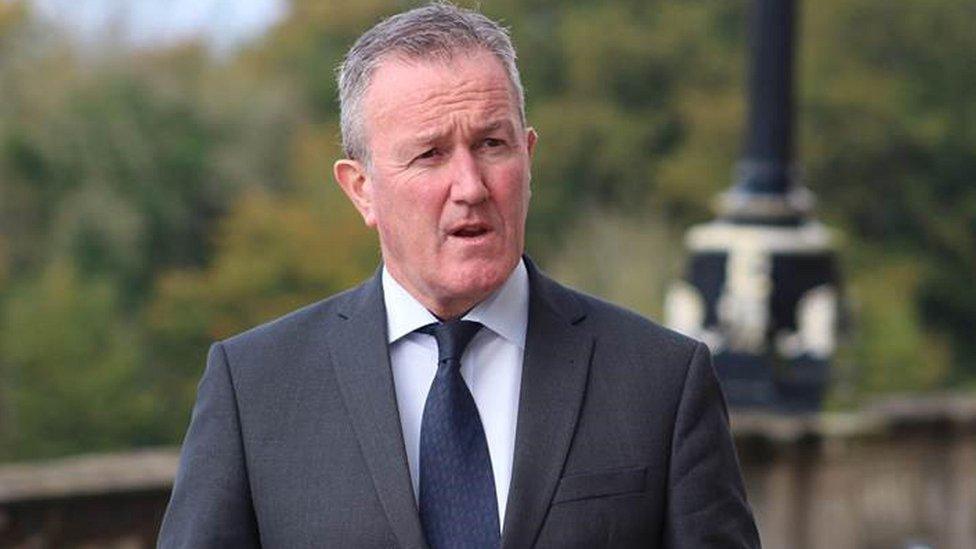
Conor Murphy says a majority vote at the executive should carried the proposal for a two-week extension
Sinn Féin's Finance Minister Conor Murphy told Good Morning Ulster the DUPs blocking of the health minister's original proposal of a two-week extension was "reprehensible".
"We would not stoop to the level that the DUP has stooped to in order to get our way.
"We believe in the democratic process, we believe the executive has a right to vote by a majority for things," he said
"If there is an issue that will detrimentally impact on one section of the community, that's what that mechanism is for - it's not to be used willy nilly.
"Six ministers voted in favour of the health minister's original proposition, that's four out of the five parties. That should have been sufficient in order to carry it."
'Betrayal of health care workers'
The chair of NI's British Medical Association (BMA) said Northern Ireland should be placed in a national lockdown, rather than the circuit breaker extended by a week.
Speaking to Sky News, Dr Tom Black said seven hospitals were operating over capacity.
"Our EDs are chock-a-block, our intensive care units are full and trying to expand," he added.
He said that in that context, a complete lockdown would "have been expected".
"We got a decision that is not competent, certainly negligent, and a betrayal of health care workers," he said.
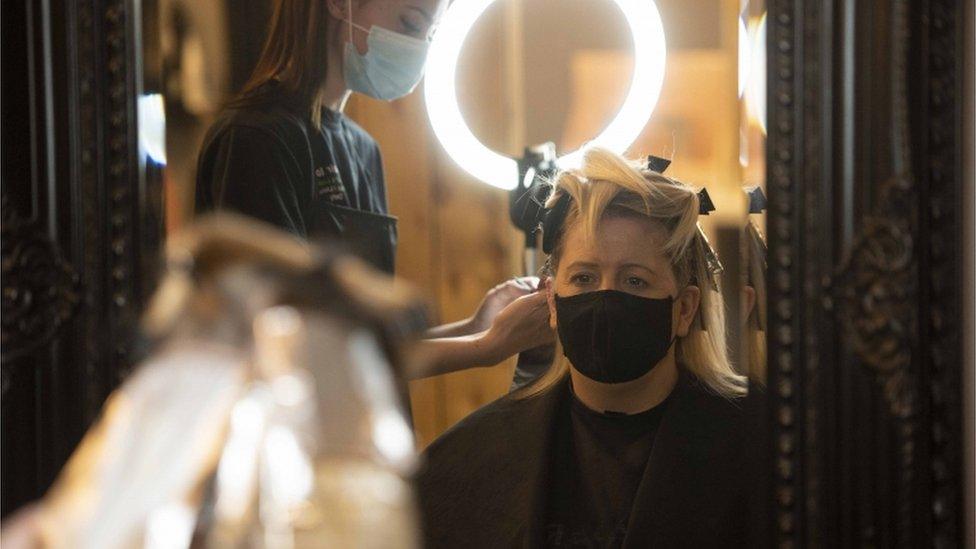
Close contact services including hair salons will reopen, by appointment, on 20 November
There has been a mixed reaction from businesses in Northern Ireland to the agreement reached by the executive on Covid-19 restrictions.
Rosemary Wright, who owns Ashburn Image hair and beauty salon in Eglinton, had already started taking bookings for Saturday but is now busy rescheduling appointments.
"They [the executive] should've made a decision far earlier, they had four weeks to say yes or no but they kept us waiting and now we have to wait another week.
"I am sitting here thinking now are we even going to open next Friday."
The salon owner has said despite being closed for over four weeks she has not received any financial support from the government.
"I applied for it, but I still have nothing. Not a penny. No furlough money, not even a grant," she told BBC Radio Foyle.
"We still have to pay our bills, I still have to pay staff, my staff are waiting each week to be paid and I have nothing coming in.
"I would say to the people on the hill have your money cut off and see how you feel. It is not easy."
'Horse-trading over people's lives'
Driving instructor John O'Donnell from Derry said he would not be going back to work yet "irrespective of what Stormont says".
"The chief medical officer is the expert - he says we need another two weeks extension and they are horse-trading over it. You can't horse trade over people's lives," he said
"I sympathise with businesses - mine is suffering as well, but I can always build my business up again. You can't dig up a grave and bring people back from the dead.
"I am not going to put myself in a position of getting Covid-19 or any of my clients."
Janice Gault of the Hotels Federation said brides wanted to know if their imminent weddings would go ahead
Janice Gault from the Northern Ireland Hotels Federation told BBC One NI's The View programme that 35% of hotel rooms in Northern Ireland had been booked this weekend.
She said 3,000 phone calls had to be made on Thursday after the executive made a decision to keep hotels closed for two more weeks.
She added: "What many people forget is we had brides who are getting married this Saturday on the phone this afternoon asking could they get married."
Colin Neill of Hospitality Ulster said he hoped the announcement would "result in thousands of jobs and businesses being saved".
"While pubs and restaurants may be closed, the bills continue to mount on a daily basis therefore extra financial support is needed now to protect businesses and jobs and we hope that the NI Executive will be swift in getting this money into bank accounts."
The document agreed by the executive also says that support will be provided for mitigations to reduce risk within the hospitality sector, including improved ventilation and requirements for the recording of customer information for contact tracing purposes.

What was agreed
Hair and beauty salons and driving instructors will reopen, by appointment, next Friday
Hospitality will reopen on a "graduated basis", with unlicensed premises such as cafes and coffee shops also opening on 20 November, but with a closing time of 20:00 GMT
Alcohol cannot be purchased or consumed on such premises
Pubs and bars will be permitted to sell sealed off sales on 20 November
Restaurants, pubs and hotels can reopen on 27 November, as the rest of the Covid-19 restrictions introduced on 16 October will expire at midnight on 26 November
Restrictions on visiting people in their homes and gardens remain in place

- Published12 November 2020
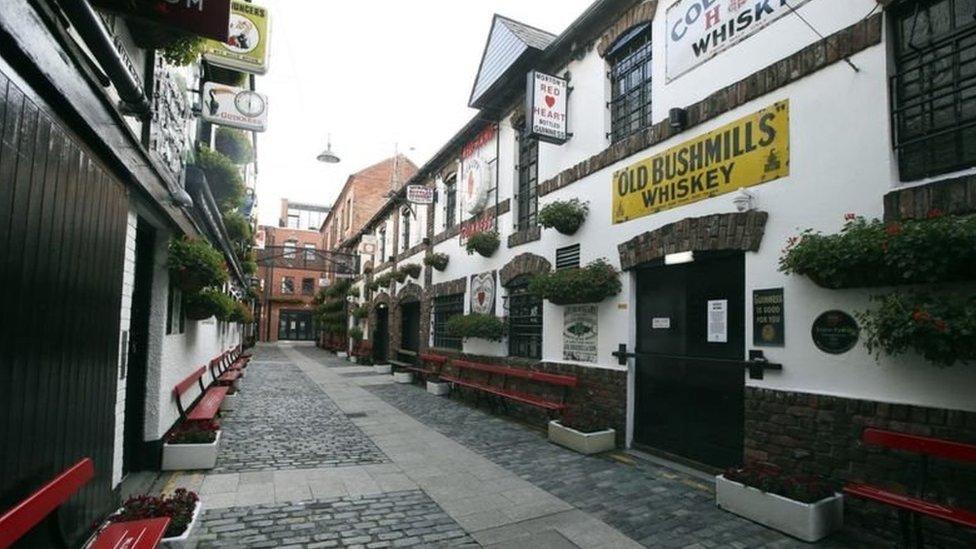
- Published12 November 2020

- Published17 June 2021
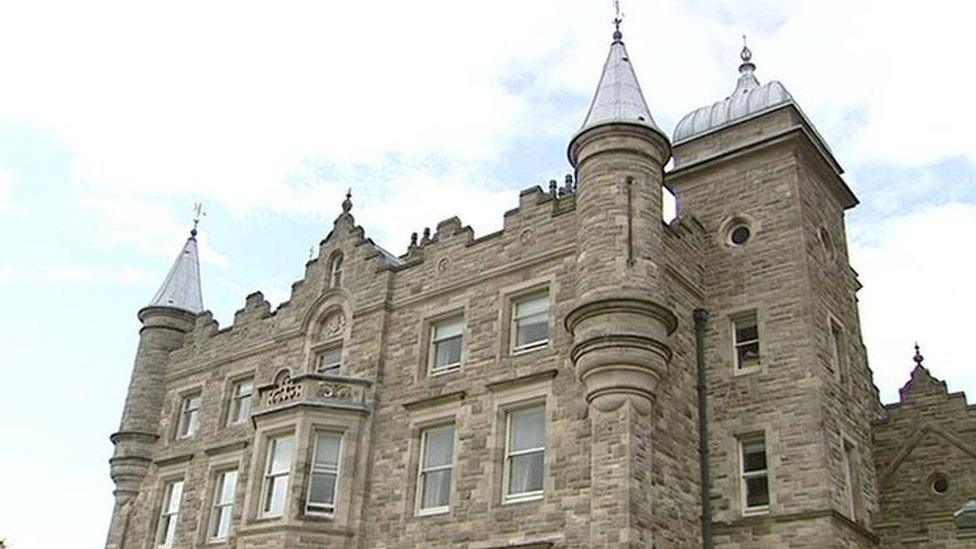
- Published11 January 2021
